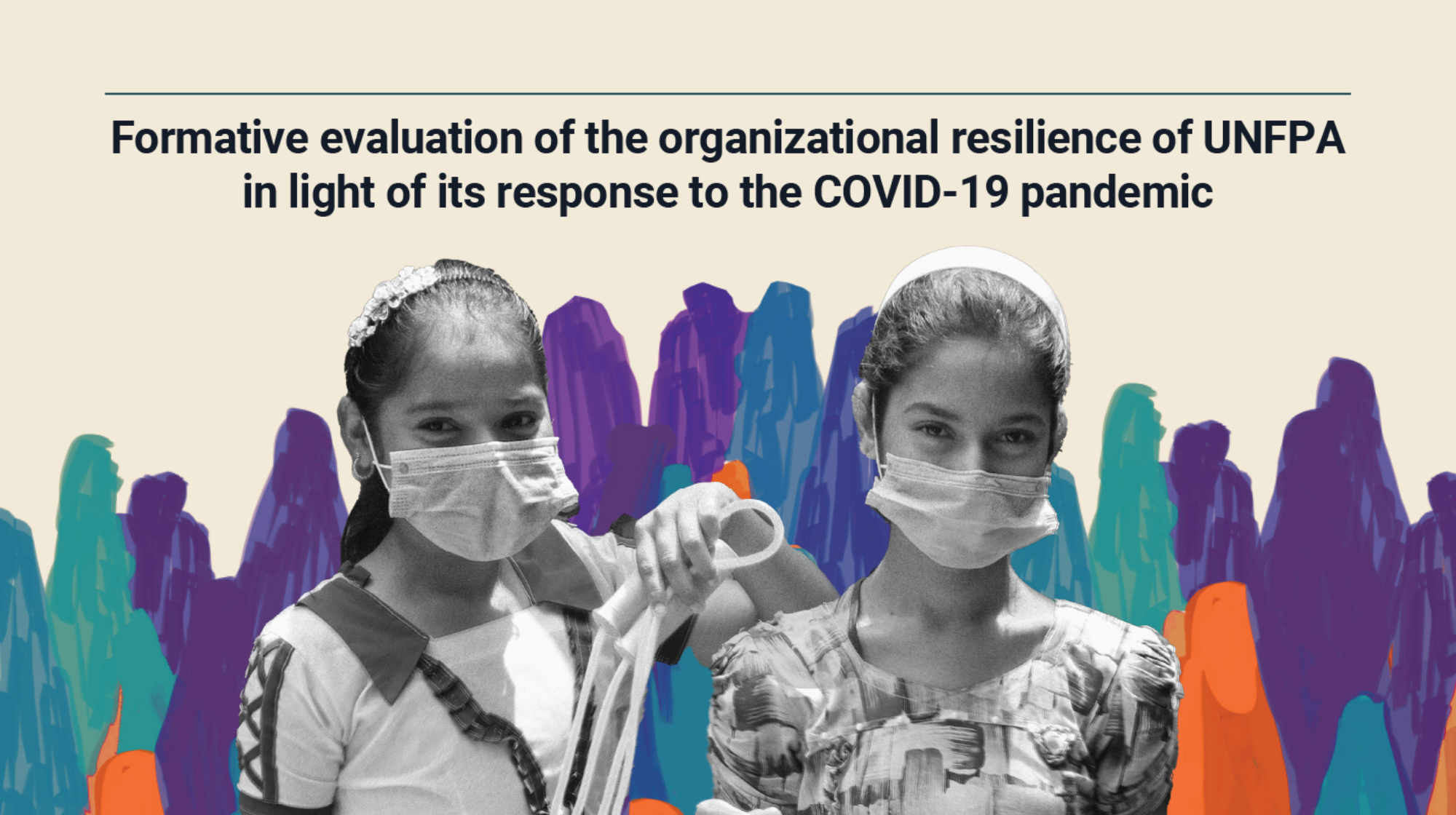The global impact of the COVID-19 pandemic has been far-reaching. The pandemic has widened existing inequalities, and disproportionately affected vulnerable populations, especially women and girls by limiting access to vital health services and intensifying gender-based violence and harmful practices. UNFPA adapted its operations to the pandemic and is leveraging lessons from this experience as an opportunity to reinforce its organizational resilience, in anticipation of future crises and disruptions.
The formative evaluation of the organizational resilience of UNFPA in light of its response to the COVID-19 pandemic assesses the performance of UNFPA in responding to the pandemic. It also analyzes the ability of UNFPA to work across the humanitarian-development-peace nexus during the pandemic, as well as the organization's capacity to learn from the crisis, ensuring it is better prepared to anticipate, respond to, and adapt to future global crises.
The evaluation reveals the COVID-19 pandemic served as a critical test of the resilience of UNFPA, highlighting its strengths and weaknesses. The organization demonstrated adaptability and innovation, with resourcefulness of its personnel to respond to the crisis. While UNFPA made significant contributions to mitigating the pandemic's effect on maternal health, family planning, and gender-based violence, these efforts fell short of the organization’s goals. The pandemic exposed gaps in business continuity management, but also fostered valuable learning experiences. Despite safeguarding the health and well-being of personnel and partners, disparities between staff and non-staff welfare emerged.
The evaluation recommends several measures to bolster the resilience of UNFPA, including increased efforts to operationalize the humanitarian-development-peace nexus approach, embedding business continuity management throughout the organization, and improving supply chain resilience. UNFPA should foster a workplace culture that supports and values all personnel, and prioritizes the systematic management of knowledge and lessons learned.
